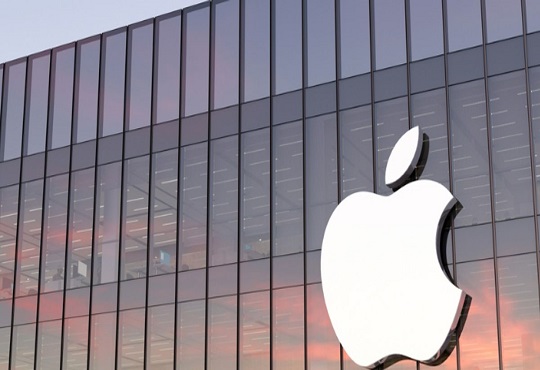Apple Ramps Up Indian iPhone Manufacturing By Tripling Its Production
CIOTechOutlook Team | Thursday, 13 April 2023, 06:22 IST
 In the most recent fiscal year, Apple Inc. tripled production in India, the world's fastest-growing smartphone market, after speeding a move outside of China.
In the most recent fiscal year, Apple Inc. tripled production in India, the world's fastest-growing smartphone market, after speeding a move outside of China.
According to those with knowledge of the situation, the US business now manufactures approximately 7% of its iPhones in India through increasing partners like Foxconn Technology Group and Pegatron Corp. For India, which produced an estimated 1% of the world's iPhones in 2021, it is a huge increase.
As tensions between Washington and Beijing continue to rise, Apple is looking into methods to lessen its dependency on China. According to the people, who asked to remain anonymous because the information is private, its longtime partners, who manufacture the majority of the world's iPhones in vast facilities in China, have expanded assembly lines at a rapid rate over the past year.
The instability at Foxconn's primary "iPhone City" facility in Zhengzhou last year, which highlighted weaknesses in Apple's supply chain and compelled it to lower output projections, made the world's most valuable corporation struggle. Additionally, a slew of incentives have been given out by Indian Prime Minister Narendra Modi to encourage domestic production.
Apple exported $5 billion worth of iPhones in the year that ended in March 2023, about four times as many as the year before, according to the people. Sometime in the fall of 2023, Apple will probably attempt to produce the upcoming iPhones in India at the same time as they are in China. If true, it will mark the first occasion when iPhone assembly starts simultaneously in both nations. Additionally, assuming its suppliers' ambitious development continues, Apple may produce 25% of all its iPhones in India by 2025. The US company's representatives declined to comment.
Apple knew it needed to diversify its supply chain even before last year's iPhone city uproar. It was effective in pushing for incentives in India and pressuring the localization of suppliers Foxconn, Wistron Corp., and Pegatron. The three companies collectively employ 60,000 people in India and produce a variety of models there, including the dated iPhone 11 and the most recent iPhone 14.
This has made it easier for India to pursue its goals of becoming a significant manufacturing centre and China's rival. When it comes to manufacturing, Apple is one of the most rigorous organisations in the world. Its production chain spans hundreds of businesses globally and employs millions of people, the majority of whom are currently located in China.
An economic victory for India has been achieved with the relocation of iPhone manufacture, and this development may have repercussions for how other US corporations envision their futures. At a time when the Chinese economy is sputtering as a result of years of harsh Covid Zero restrictions, the nation itself represents for Apple a source of future growth.
Next week, Apple will debut its first two retail locations in India, one in Mumbai, a major financial center, and the other in New Delhi, the country's capital. Tim Cook, the chief executive, will fly in to personally open the two stores, highlighting the growing significance of the local market.
As part of its aim to increase local production and build megafactories, Cupertino, California-based Apple has also asked for modifications to India's labour laws.
Foxconn, its largest contract manufacturer, wants to spend $700 million building a plant in a southern state to produce phone parts and perhaps iPhones. Representatives from Pegatron, Wistron, and Foxconn did not immediately reply to requests for comment.




